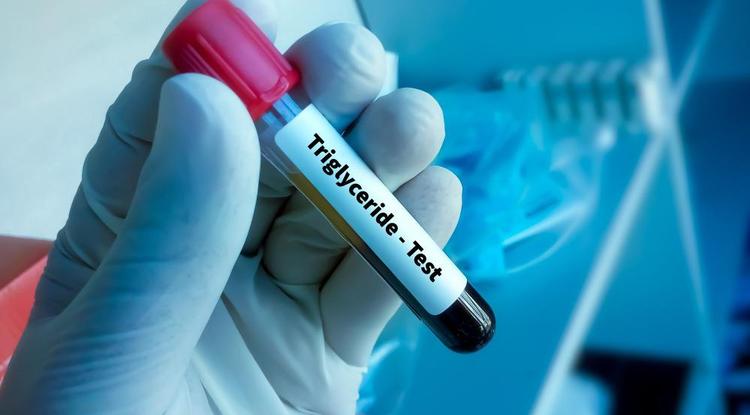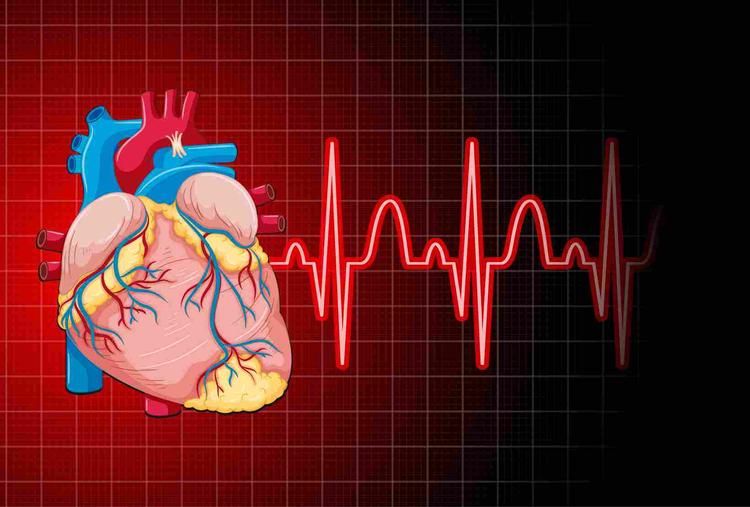8 Tips to Control Cholesterol: Expert Advice for a Healthier Heart

Medically Reviewed By
Dr Sohini Sengupta
Written By Kirti Saxena
on Sep 26, 2023
Last Edit Made By Kirti Saxena
on Mar 17, 2024

Your body needs cholesterol to work properly. But if you have an excess amount in your blood, it can stick to the inner walls of your arteries and cause them to become more narrow or even block them. High cholesterol levels can be a silent threat to your health, as this increases the risk of heart disease and stroke. However, the good news is that there are several ways to lower cholesterol.
Cholesterol is a waxy, fat-like substance found in every cell of your body and plays crucial roles in various bodily functions. There are two major types of cholesterol, including LDL cholesterol (low-density lipoprotein cholesterol) or bad cholesterol, and HDL cholesterol (high-density lipoprotein cholesterol) or good cholesterol. An imbalance in cholesterol levels, specifically having high levels of low-density lipoprotein (LDL) cholesterol or "bad" cholesterol, can cause serious health consequences. If you are looking for practical tips to reduce cholesterol levels, you've come to the right place. In this blog, we'll explore effective tips that can help you take control of your cholesterol and improve your health.
Tips To Follow To Lower Your Cholesterol
- Use the Right Oil in Cooking
When you use oils high in unsaturated fats, like olive oil, canola oil, or sunflower oil, they can actually work like little helpers in your body. They help to carry away the bad cholesterol from your arteries so it doesn't clog them up. This lowers your risk of heart problems. When you buy oils, read the labels. Look for oils that say "unsaturated fats" or "heart-healthy." Avoid lubricants that mention "saturated fats" or "trans fats."
Pro tip: Use oils such as olive oil, canola oil, safflower oil, and sunflower oil. Extra virgin olive oil is an excellent choice for sautéing and light frying at low to medium heat. Avoid oils high in these fats, like palm oil and coconut oil.
- Increase Soluble Fiber Intake
Soluble fiber is like a sponge in your belly. When you eat foods rich in soluble fiber, it soaks up the bad cholesterol (LDL cholesterol). Foods with soluble fiber make you feel full and satisfied. When you eat them, you might eat less junk food and snacks that can raise your cholesterol. You can find soluble fiber in lots of everyday foods. Oats, beans, lentils, fruits like apples and oranges, and vegetables like carrots and sweet potatoes are full of this superhero fiber.
Pro tip: Aim for at least 25-30 grams of fiber per day. You can add more fiber to your diet easily. You can start by having oatmeal for breakfast, snacking on fruits, or adding beans to your soups and salads. These small changes in your diet can make a big difference for your heart.
- Eat More Omega-3 Fatty Acids
Eating foods with Omega-3 fatty acids is like giving your body a shield to protect your heart and keep your cholesterol in check. Omega-3s are good for lowering the LDL cholesterol because they boost the good cholesterol (HDL cholesterol). It also helps to reduce inflammation in your body. When your body is less inflamed, it's less likely to have problems like clogged arteries.
Pro tip: You can find Omega-3s in fatty fish like salmon, mackerel, and sardines. If you don't like fish, there are plant sources of Omega-3s, too. Adding Omega-3s to your diet is easy. You can have fish for dinner, sprinkle flax seeds on your cereal, or snack on some walnuts.
- Be Physically Active And Exercise Daily
When you're active, your heart strengthens like a muscle. This helps it pump blood more efficiently. Regular exercise can also lower high blood pressure, another risk factor for heart disease. Exercise is a good stress-relief technique and helps control your blood sugar. Physical activity not only helps with weight management but also raises your HDL (good) cholesterol levels. By being active and exercising daily, you're not only lowering your cholesterol but also increasing your chances of living a longer, healthier life.
Pro tip: Aim for at least 150 minutes of moderate or 75 minutes of vigorous-intensity exercise each week. You don't need to do fancy workouts. Simple things like walking, dancing, or even gardening count as exercise. The key is to move your body every day.
- Maintain a Healthy Weight
When you are overweight, your body tends to make more bad cholesterol (LDL cholesterol), which can clog up your arteries and harm your heart. It may also increase the risk of high blood pressure, damaging your arteries. Thus, maintaining a healthy weight means shedding excess fat or bad cholesterol. You don't need extreme diets or fancy gym routines to lose weight. Small changes like eating more nutritious foods and being more active can make a big difference.
Pro tip: Aim for a balanced diet and regular exercise to achieve and maintain a healthy weight.
- Consume Plant Sterols and Stanols
Plant sterols and stanols are like tiny blockers. When you eat them, they stand guard in your gut, blocking some bad cholesterol (LDL cholesterol) from being absorbed into your body. Consuming plant sterols and stanols is like having a natural shield for your heart to lower your cholesterol. To get the most benefit, it's a good idea to have plant sterols and stanols every day as part of a heart-healthy diet.
Pro tip: Add margarine, yogurt, and orange juice to your meals to lower LDL cholesterol levels.
- Take Routine Tests To Monitor Your Cholesterol Levels
Consistency is key when it comes to lowering cholesterol. Track your progress, and work closely with your healthcare provider to monitor your cholesterol levels and make necessary adjustments to your lifestyle and medication if required.
Pro Tip: Take Cholesterol and lipid profile tests regularly from Redcliffe Labs to monitor your cholesterol levels.
- Quit Smoking
Quitting smoking is like opening a window to let in fresh, clean air for your heart and cholesterol levels. Smoking also raises your blood pressure, making your heart work harder and putting more strain on your arteries. Quitting smoking not only helps lower your cholesterol but also reduces your risk of heart disease, stroke, and various cancers. It's like giving yourself a longer, healthier life.
Pro tip: Smoking dulls your senses of taste and smell. When you quit, you'll start to enjoy food more, and you won't miss out on the delicious flavors of life.

Benefits Of Controlling Your Cholesterol
When your cholesterol is controlled, you can enjoy life more. Maintaining your cholesterol levels comes with a bunch of great benefits that can help you live a healthier, happier life. Here are a few advantages:
- Good heart health
- Reduce stroke risk
- Controlled blood pressure
- Reduce the risk of heart diseases
- Good Metabolic Health
Cholesterol-Lowering Foods You Should Add to Your Diet
You can add these foods to your diet to manage your cholesterol levels. Let’s have a look:
- Lean Protein Sources like skinless poultry, fish, tofu, and legumes.
- Nuts like almonds, walnuts, and pistachios
- Apples, Avocados, grapes, strawberries and citrus fruits
- Soybeans
- Legumes like beans, peas, and lentils
- Fatty fish such as salmon and mackerel
- Whole grains like oats and barley
- Dark chocolate and Cocoa
- Garlic
- Vegetables like potatoes, eggplants, okra and carrots
- Green tea, black tea
- Leafy greens like spinach, kale
- Olive oil
How Do I Know If I Have Uncontrolled Cholesterol?
Knowing if you have high cholesterol is important for your health. Here are some simple signs and ways to find out:
- Blood Test: Take a Lipid panel or cholesterol panel test.
- Check parameters:
- Total Cholesterol: T
- LDL (Low-Density Lipoprotein) or bad Cholesterol
- HDL (High-Density Lipoprotein) or Good Cholesterol
- Triglycerides
- Normal Cholesterol Levels: Total Cholesterol must be under 200, HDL must be above 60, and LDL should be below 100.
- Risk factors: Having family history, being overweight, having diabetes, and smoking habits.
- Symptoms: Abnormal cholesterol level does not cause any symptoms you can feel. It's often called a "silent" problem. Getting tested is essential, even if you feel perfectly fine.

Read Our Other Blog on Food Items That Can Help Keep Cholesterol in Control: -
Manage Your Cholesterol To Keep Your Heart Happy
Managing your cholesterol is simple; you need to adopt some healthy habits and lifestyle. By adding these above tips to your daily routine, you can reduce your cholesterol levels and lower your risk of heart disease. Take routine Cholesterol profile tests, and if diagnosed with high cholesterol problems, consult with your Doctor. So, remember, small changes today mean a healthier, stronger heart tomorrow.



